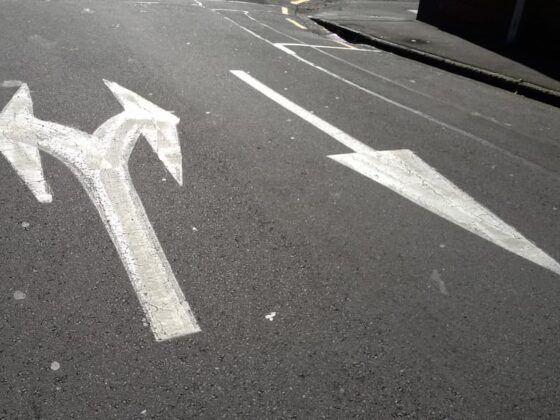Wills & Trusts: Two Different Estate Planning Tools
All of us have heard about Wills and Trusts, however the difference is not always as obvious. Both are valuable estate planning tools, but while they can be useful to manage separate aspects of your estate, they are not the same.
Q1: What is the main difference?
The main difference between the two is when they come into effect. A Will determines post-death wishes, while a living revocable Trust becomes effective immediately. It is important to mention that “inter vivos“, also known as Living Trusts, are created while an individual is still alive with the scope to name the beneficiaries of property and assets upon death, while avoiding the probate process.
Q2: Who owns which?
With a Will, all assets stated in it remain property of the testator. The Will is triggered when that person dies and one or more individual(s) named in the Will as executor(s) is/are responsible for carrying out the wishes expressed in the Will. After paying any debts that the deceased might carry, assets in the Will become property of the beneficiaries.
Differently, a Trust becomes effective as soon as it is established, which means that ownership of the assets can be transferred during the original owner’s life.
With a Trust, ownership is divided between a trustee and one or more beneficiaries. The trustee has legal ownership of the assets designated in the Trust and manages it on behalf of the beneficiaries, who do not carry the legal titles of the assets contained in the Trust.
Trusts’ assets tend to be distributed so that the beneficiary collects an income from the Trust during their lifetime and/or the beneficiary gets any remaining capital assets after the death of the original beneficiary. Nonetheless, a specific Trust structure is required by law/regulation and the trustee must adhere to their statutory duties, such as exercising a duty of care under section 3A of the Trustee Ordinance, Cap. 29. There is a wide selection of the types of Trusts that clients can choose to set up and how they utilise them to manage their assets.
Q3: What assets are included?
Pursuant to section 3 of the Wills Ordinance, Cap. 30, Wills exclusively include all properties and assets of the individual making the Will, excluding any Trusts of which they might be the beneficiary and any assets held in joint tenancy.
A Trust pertains only to the assets which have been assigned to it, hence legal ownership of such assets and properties must be assigned to the Trust, either when it is set up or subsequently.
Q4: Do I need both to take care of my Estate?
One might think that it is not necessary to make a Will if a Trust has already been created, as they both take care of assets after death. The main reason to write a Will in any event is that a Trust only covers property and assets that have been transferred to it. It is rare for all assets to be transferred to a Trust and – even if one scrupulously tries to transfer everything – there is always the chance that they will acquire property or liquid assets not long before they die. If it is not possible to transfer such ownership to the Trust, these will not be included under its terms.
Q5: What cannot be included in a Trust?
A Will can take care of some important things that a Trust cannot do. For example, a Letter of Wishes which instructs the executor about funeral arrangements, passing memorabilia to certain individuals, “digital assets“, insurance and pension funds, forgiving certain debts or further integrations that someone might wish to include. One of the most common is a Deed of Guardianship – either temporary or permanent – which affords an essential layer of protection for surviving children, without having to go through the necessary and lengthy probate process.
Q6: Does the probate process apply to both?
It is crucial to know that a Will needs to go through a probate process, where the Court ensures that the Will is valid and that all beneficiaries are getting what they are entitled to. In essence, it is a matter of having the Court changing the title on assets so that they can pass to the beneficiaries named in the Will. Only a Court can do this once the person who previously held title has actually passed on, so beneficiaries of Wills must petition the Courts for the title transfer. Wills pass through probate when property involved in them is held solely in the name of the deceased, to ensure that the deceased wishes are carried out.
Differently, a Living Trust does not go through probate. The Court does not get involved in the process since there is already a trustee appointed to do this. Trusts are generally private, while Wills are public. We have discussed the most common types of Trusts in our previous article “Trust Focus Week: Different types of Trusts“.
Q7: Which solution is more expensive?
Wills are generally more straightforward and less expensive to set up, however they will involve post-death costs for the beneficiaries who need to go through the probate process, which often involves legal and Probate Registry costs.
Trusts tend to be more expensive than Wills to establish and manage, however they offer a more effective way to control the passing of an estate beyond the grave, especially in a situation where a substantial level of wealth or more complicated family situations might be involved.
Q8: Which one is better?
One is not better than the other as it all depends on each specific situation. Trusts and Wills aren’t interchangeable, and in most circumstances they can be complementary.
Wills and Trusts are distinct legal documents that naturally share the common goal of facilitating a unified estate plan. Since revocable Trusts become operative before the Will takes effect upon death, the Trust takes precedence over the Will, in a similar way also when there are conflicts or discrepancies between the two.
As mentioned earlier, a Will can take care of specific issues which go above and beyond just financial aspects, while a Trust – aside from being shielded from the probate process – can be an efficient tool for creditor protection since assets held in a Trust cannot be claimed against business debts, divorcing spouses, unpaid loans, credit card debts or bankruptcy.
A Trust can also protect children with special needs, disabilities or long-term conditions or particularly shield assets held overseas from estate taxes, which in some jurisdictions can be substantial, especially in the case of high-valued estates.
For information purposes only. Its contents do not constitute legal advice and readers should not regard this as a substitute for detailed advice in individual instances.
Originally published on Expat Briefing





